
July 23, 2025
Cachua’s sister shared his story and urged students to fight for justice at an April 18 event at Pitzer College.
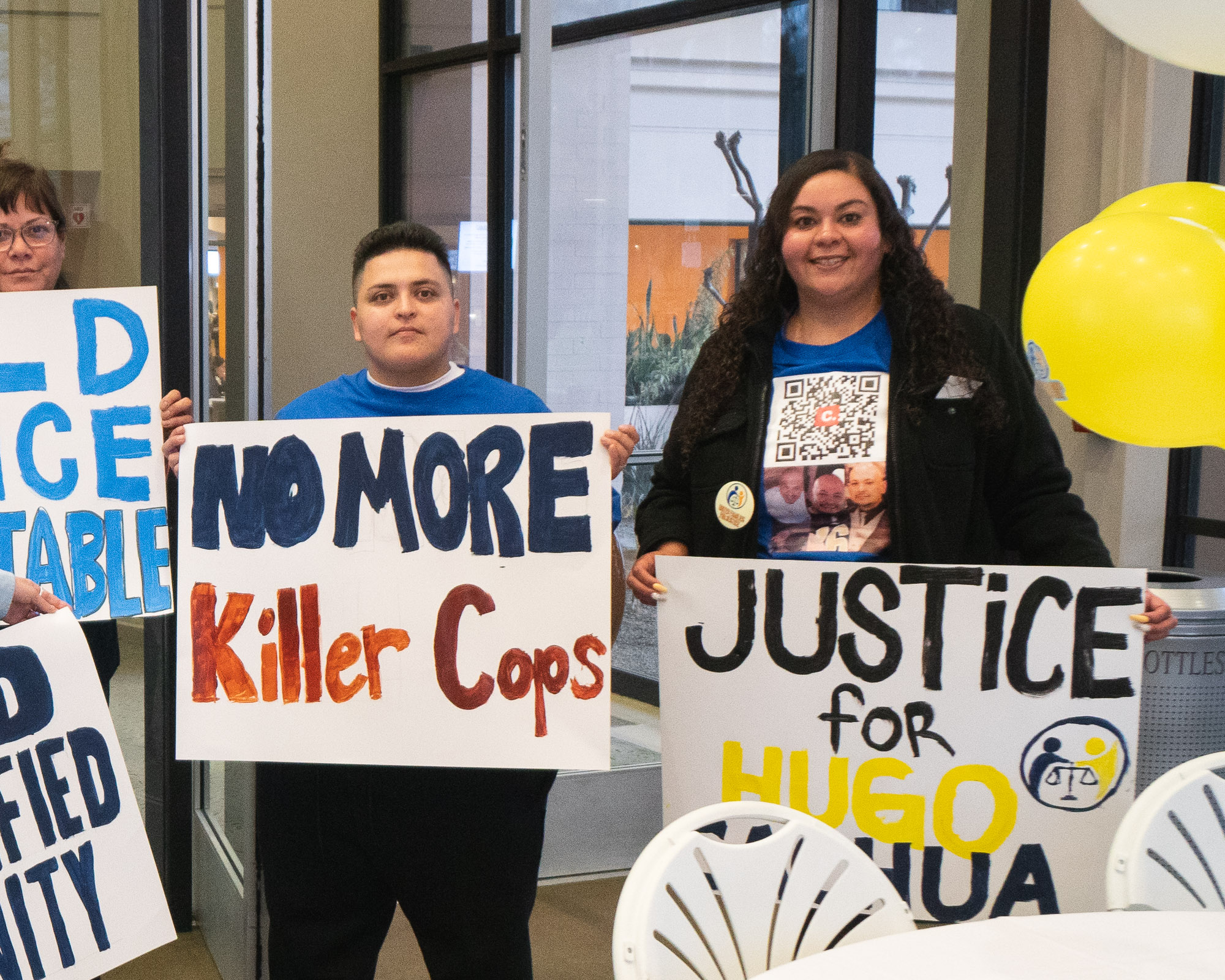
On May 30, 2024, campus was quiet. The semester was over, and most students had left.
15 minutes away, near the Euclid Ave exit of I-10, 37-year-old father-of-three Hugo Cachua got out of his car after a fender-bender with off-duty LAPD officer Victor Corral.
Corral started a fight with Cachua, subsequently taking out his gun and shooting Cachua six times, killing him, according to a lawsuit filed by Cachua’s family. Cachua was unarmed, and his bullet wounds show that several shots hit him from behind.
More than a year later, no criminal charges have been filed against Corral for killing Cachua. Though the California Department of Justice opened a case regarding Cachua’s shooting, as required for all officer-involved shootings of unarmed civilians under AB 1056, the case status remains “under investigation” and Corral was able to return to duty as a police officer in October 2024.
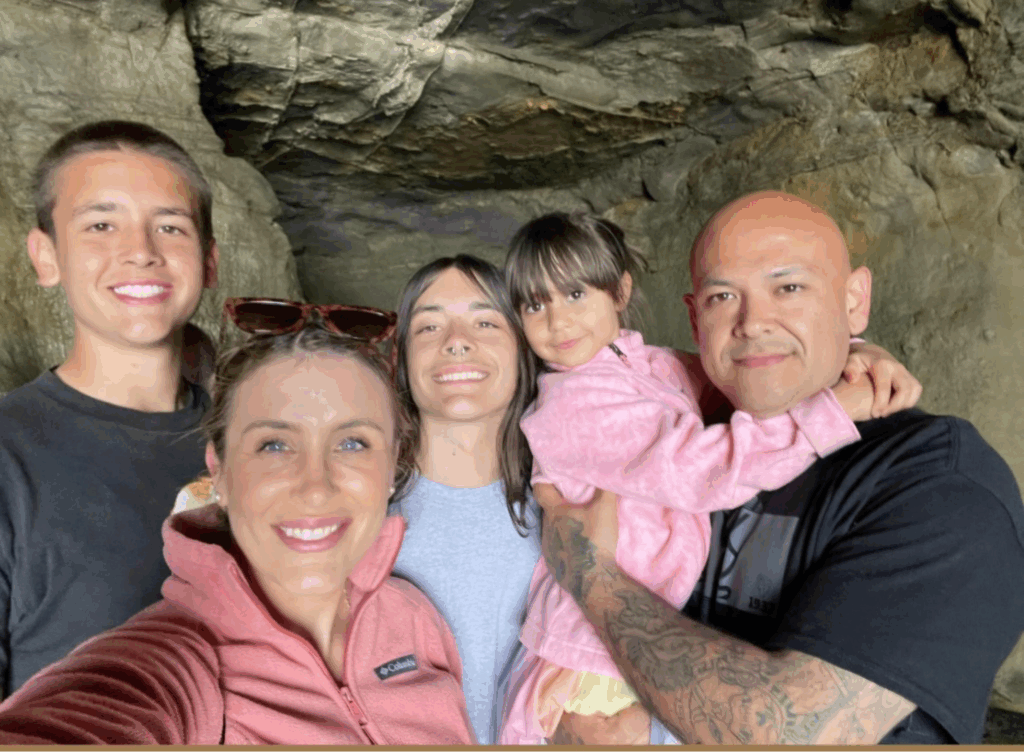
At an April event at Pitzer College, Cachua’s sister Melissa Miramontes said Corral was able to “pull the cop card” and escape accountability within a law enforcement system that protects its own.
“Police should not be allowed to kill and walk free. They should not get away with murder and wear it like a badge of honor,” Miramontes said.
Miramontes, president of the newly-formed organization United Families For Justice, shared Cachua’s story on April 18 at an event hosted by students in Scripps Politics Professor Mar Golub’s Practicing Abolition Democracy class. Miramontes — as well as family members of David Sullivan, a 19-year-old killed by Buena Park police in 2019 — urged students to pay attention to the police violence in their communities and speak out against it.
“What happened to Hugo happened less than 15 minutes away from here,” Miramontes said. “If you don’t think that this can happen to you or to somebody you love … you are being blinded by a reality that can just knock on your door at any given moment.”

United Families for Justice formed in March 2025, after several families impacted by police killings met at National Day Against Police Brutality events in LA in October 2024. The organization was founded on the belief that “families of victims of police violence deserve not just sympathy, but action,” as stated on a flyer shared by Miramontes.
Today the organization is made up of seven families across California, New York, New Jersey and Wisconsin. That includes the family of Francisco Nunez, who died in LASD custody in May 2024, with LASD shooting a 14-year-old witness to his disappearance two months later; the family of Jimmy Lopez, who Hemet police shot with over 100 rounds as he sat smoking on a sidewalk in July 2024; and the family of Christopher DeArman, who San Diego police shot and killed in Jan. 2023 after pulling him over for a broken tail light.
Miramontes described United Families for Justice as a “support group,” hosting monthly meetings for family members to “share their thoughts, their hopes, [and] maybe if they need some resources on what to do to try and seek justice, give them that platform.” On the action side, the organization hosts protests and vigils to build community awareness of police violence and push legislative campaigns.
United Families for Justice hosts a vigil for Cachua on the 30th of every month, with details announced on Instagram. At the April event, attendees helped paint signs for the upcoming vigil.
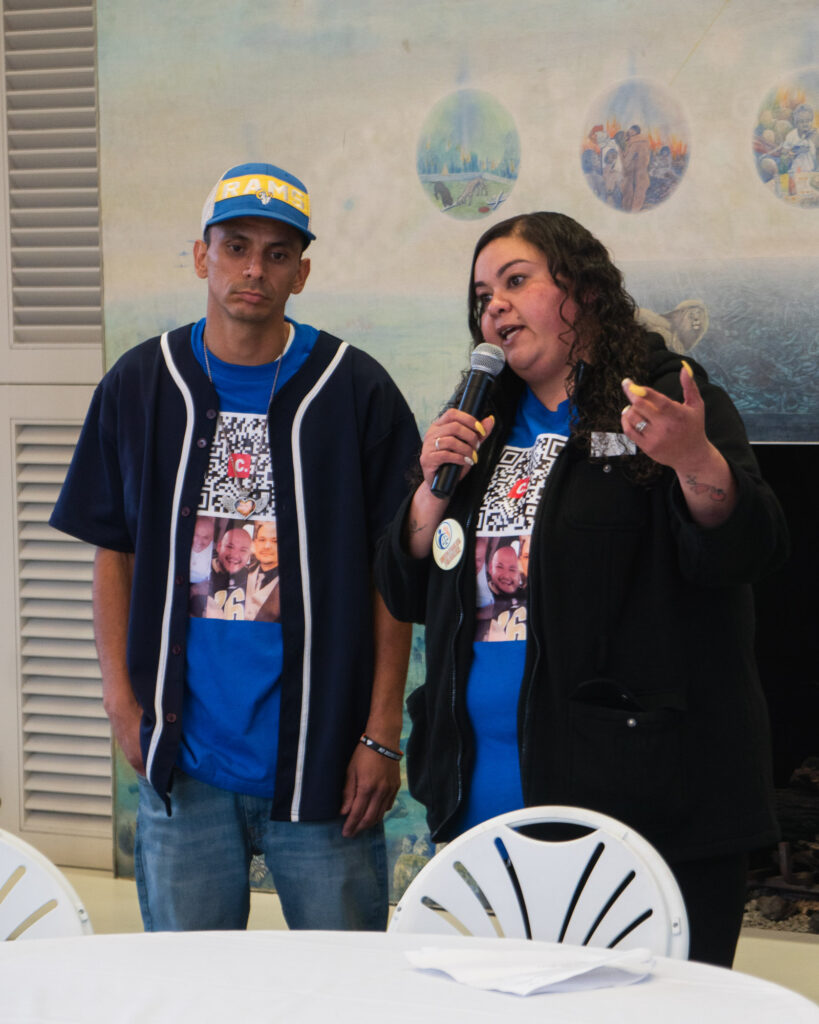
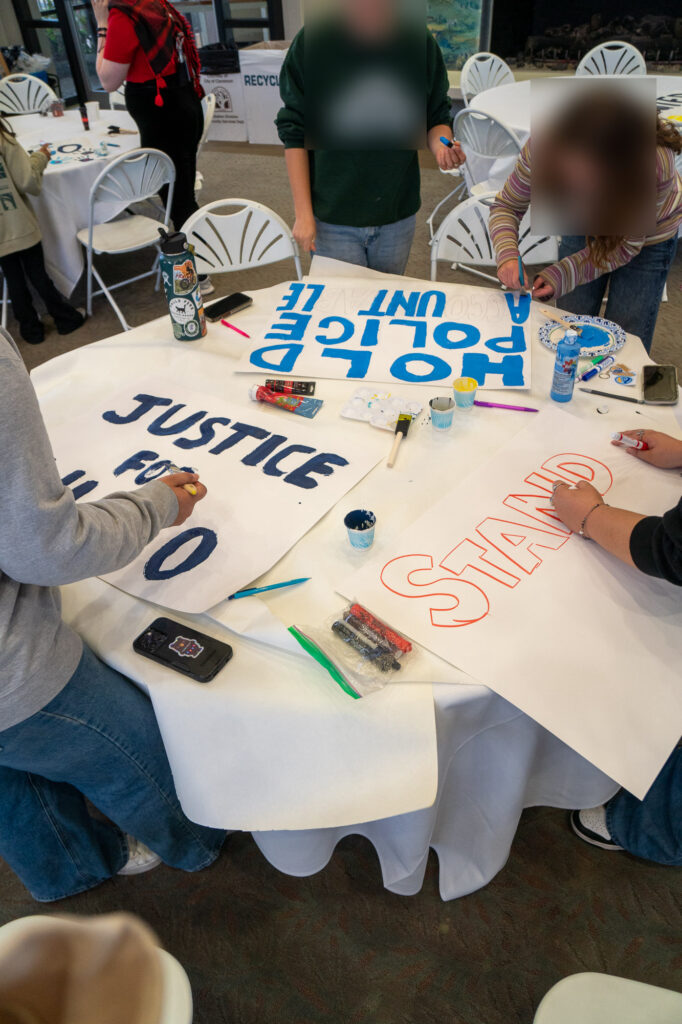
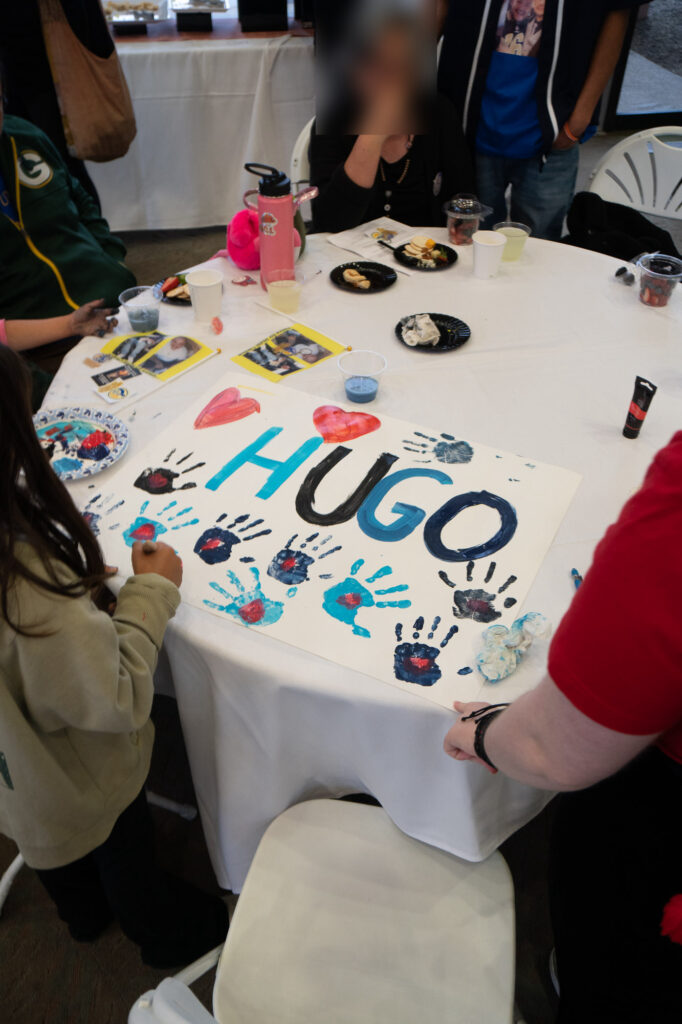
Cachua grew up near Claremont, and his younger brothers graduated from Claremont High School.
“This area is home to us,” Miramontes said.
Cachua always “listened without judgment, showed up without question and gave everything he had,” Miramontes said. “Even when he had little, he made me laugh.” Miramontes said Cachua liked reading and learning history, and “believed in justice in people and in change.”
When he killed Cachua, Corral was “acting like a rage-ified civilian physically fighting, escalating the situation,” Miramontes said.
“But the moment he pulled the trigger, the moment he took [Cachua’s] life, suddenly he remembered his badge. He pulled the cop card to protect himself and now he’s hiding behind that badge.”
In March, Cachua’s family filed a lawsuit against Corral, the LAPD and the City of Los Angeles, seeking damages for causing Cachua’s wrongful death and violating his Civil Rights. A petition calling for Corral’s arrest has gained over 3,300 signatures, and a fundraiser has raised over $10,600 for funeral and legal fees for Cachua’s family.
The petition “speaks volumes to how many people are in support of Hugo’s fights and of our fight for justice,” Miramontes said. “A lot of people understand that this wasn’t right.”
“We cannot bring our loved ones back, but we can make sure their death is not ignored.”
Miramontes highlighted United Families for Justice’s support of AB 572, a California bill aimed at preventing police from conducting deceitful interrogations of police killing victims’ family members to spin victim-blaming narratives.
“Police departments are trained to create a narrative very fast … they ask invasive interrogating questions, such as, what your loved one’s mental health was like, if they were in a gang, if they had any drug problems, if they had a job, if they were upset with their families — all questions that have nothing to do with the incident,” Miramontes said. “Why are you asking me what type of person my brother was when he was unarmed and you shot him?”
AB 572 would require police officers and prosecutors to identify themselves and share the status of a person who was killed or injured with immediate family members before questioning them. The bill has passed through two committee votes and is pending a vote in the Assembly.
Meanwhile, new protections have come through for the other side of the table. In April the Los Angeles Board of Police Commissioners voted to give officers 72 hours after an incident to avoid being interviewed for use-of-force investigations, which activists and researchers have pointed out disproportionately benefits police officers and shields them from accountability.
“There’s two laws, theirs and ours,” Miramonte said.
“Change doesn’t happen by accident. It happens when people like you refuse to stay silent,” Miramontes told students at the April event.
Miramontes urged students to understand police violence as an issue that directly impacts them.
“We never thought this would happen to us. Never in a million years. We hear about it, we see it on the news. ‘Oh, that can never happen.’ Guess what? It happened. And I’m telling you now, it can happen to anybody,” she said. “If you guys start to pay attention to what’s around you … you’ll see it.”
Miramontes told students not to “leave … knowledge in textbooks,” but instead “challenge this broken system with your ideas, your passion, your truth.”
“I want you guys to ask yourself, what will you do with what you hear today? Really ask yourself, what will you do with what you hear today? How can you use what you’re learning to make a difference?”
Miramontes said it is important to speak out and fight against police violence, even if change does not come in a lifetime.
“We’ve lost, our families have lost. We fight for our loved ones, but it’s more so for your future, for your children’s future,” Miramontes said. “We can build something bigger than our pain. A movement, a demand, a legacy for justice.”

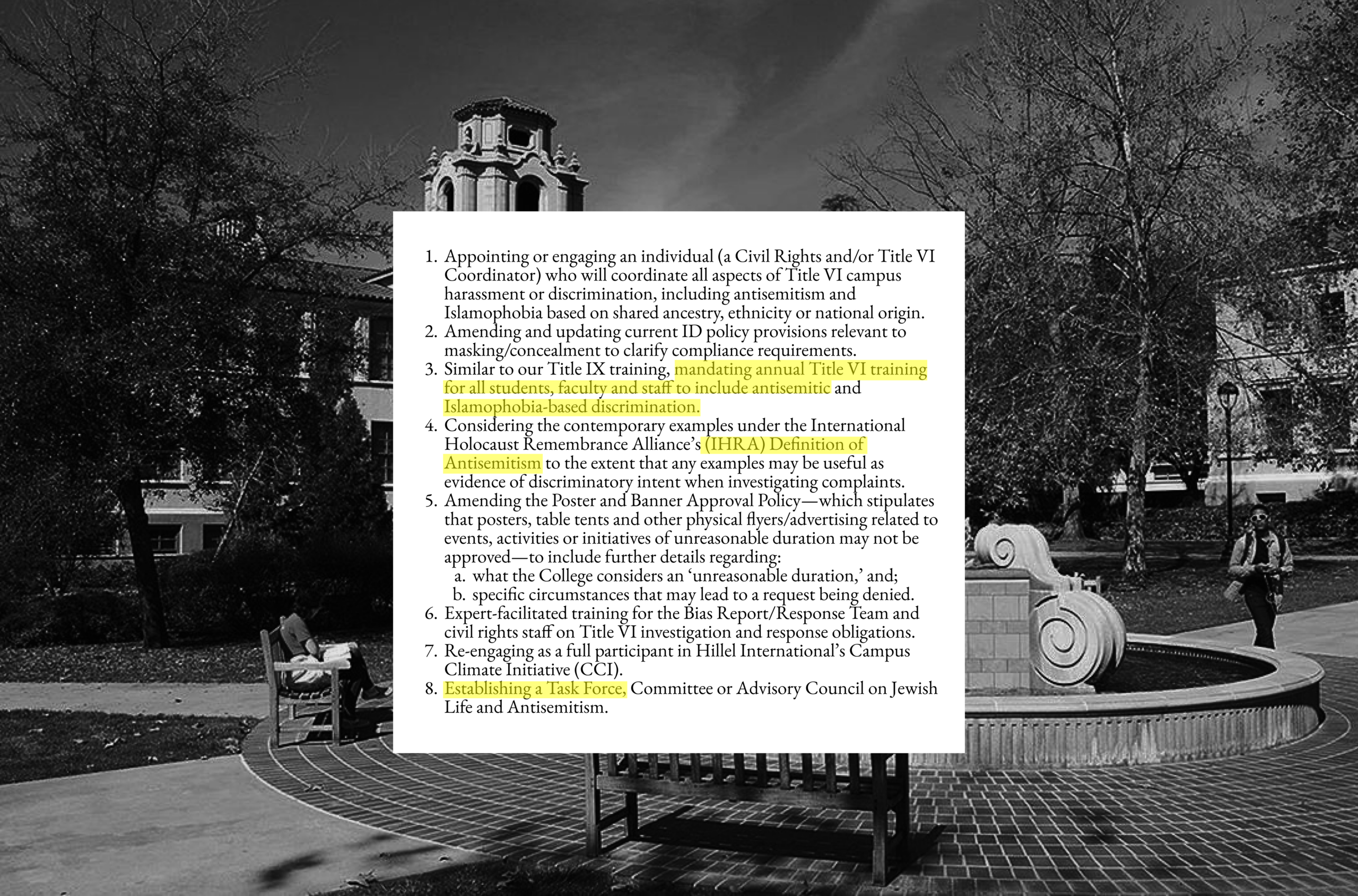
Commentary

Palestine
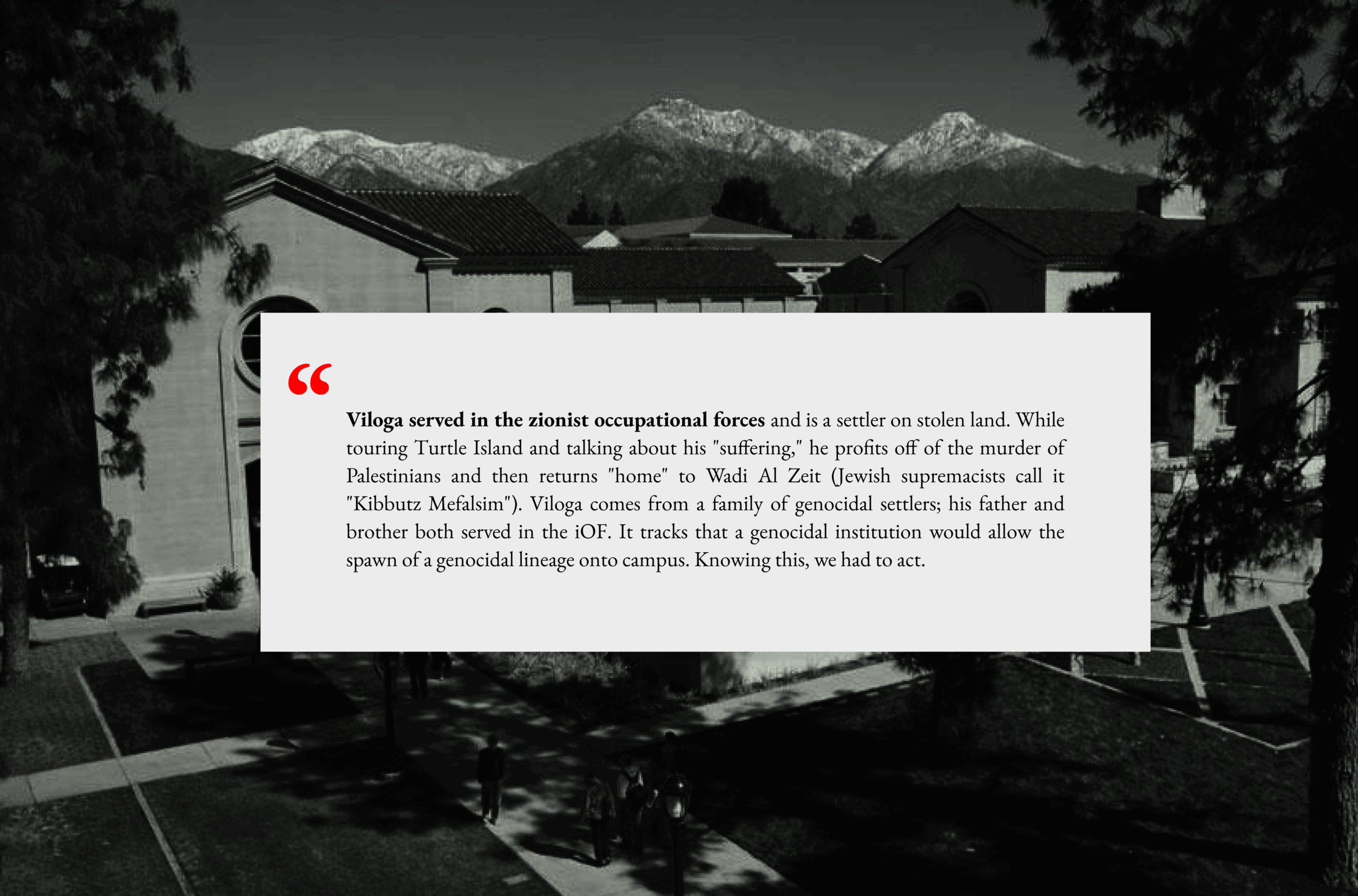
Palestine

Undercurrents reports on labor, Palestine liberation, prison abolition and other community organizing at and around the Claremont Colleges.

Issue 1 / Spring 2023
Setting the Standard
How Pomona workers won a historic $25 minimum wage; a new union in Claremont; Tony Hoang on organizing
Read issue 1